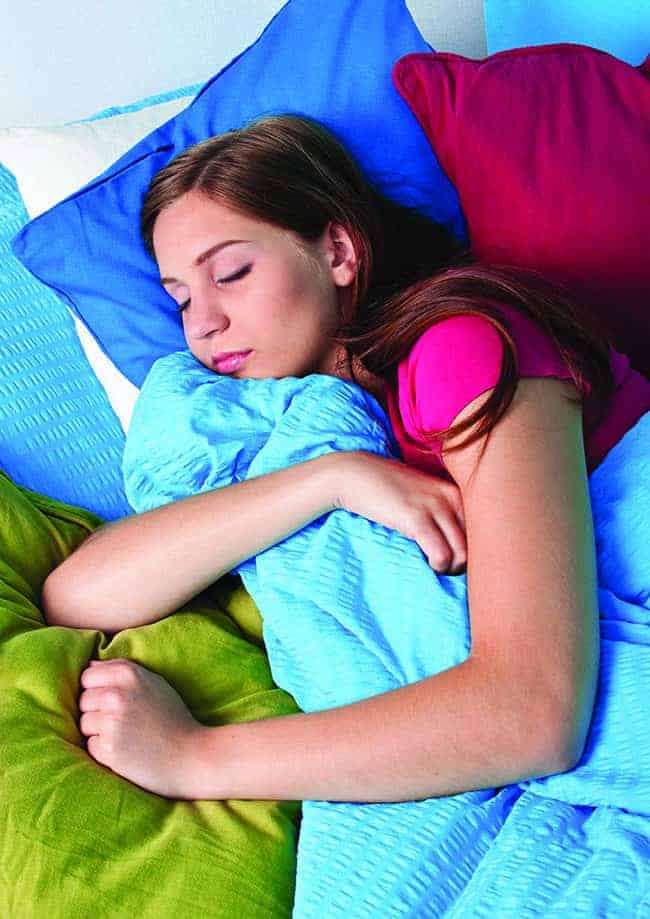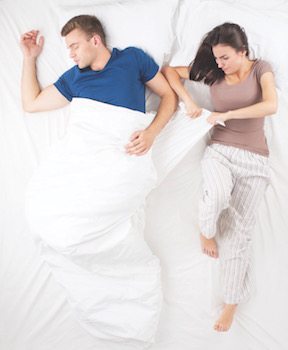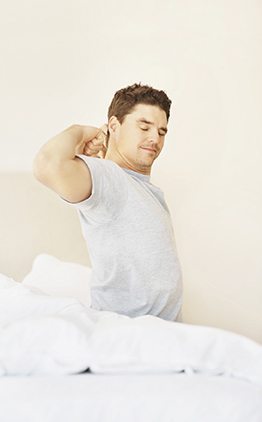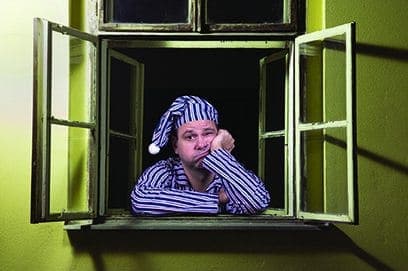And more of the latest sleep news and research

When you’ve had a night of tossing and turning, an extra cup of coffee seems like a good idea, right?
You’re not wrong, at least as far as it goes. A new study found that a caffeine boost may help with easy tasks after a night of poor sleep, but it doesn’t do much for helping you get through important tasks throughout the day, according to a May 28 article in the Herald-Sun, a Durham, North Carolina, newspaper.
Michigan State University researchers tested the effectiveness of caffeine in helping healthy undergraduates think and act clearly. More than 275 students recorded their sleep for five nights before the study. They were then asked to complete two tasks: clicking on a red circle as soon as it appeared on their computer screen, which took 10 minutes, and a more complex 35-minute activity that required the students to complete steps in a specific order without skipping or repeating steps, the article said.
The participants were randomly assigned to either stay awake overnight in the lab or go home and sleep. The next day, all students were given either a 200 milligram caffeine pill or a placebo and asked to do the activities again. Those who were sleep deprived did worse on both tasks, but the caffeine did help with the easier red circle test.
The study was published May 20 in the Journal of Experimental Psychology: Learning, Memory & Cognition.
“Caffeine may improve the ability to stay awake and attend to a task, but it doesn’t do much to prevent the sort of procedural errors that can cause things like medical mistakes and car accidents,” said Kimberly Fenn, psychology associate professor, who led the study. “Our findings underscore the importance of prioritizing sleep.”
Position Statement: Sleep Is Essential

The American Academy of Sleep Medicine published a statement with which we all can agree — sleep is essential to health.
Written by the AASM board of directors and published online June 21 in the Journal of Clinical Sleep Medicine, the statement notes that there is a need to put even greater emphasis on the importance of sleep.
“Healthy sleep is as important as proper nutrition and regular exercise for our health and well-being, and sleep is critical for performance and safety,” said Kannan Ramar, AASM president. “It is the position of the AASM that sleep is essential to health, and we are urging educators, health care professionals, government agencies and employers to prioritize the promotion of healthy sleep.”
How to Talk to Kids About a Sleep Divorce

Not all couples sleep peacefully together. A past Better Sleep Council survey found that one in four couples sleep in separate beds. Some might wonder: How does that affect the kids?
“There’s still shame attached to it for some people because of how taboo the topic is,” said Meir Kryger, a professor of medicine at Yale University in New Haven, Connecticut, and author of “The Principles and Practice of Sleep Medicine” in a June 22 USA Today article.
Reasons couples may choose to sleep apart range from snoring and restlessness to incompatible sleep schedules. It doesn’t necessarily mean trouble in the relationship.
“There’s no research that suggests that couples who sleep apart for the purpose of better sleep have any less of a romantic connection than couples who share a bed,” Kryger said.
Parents can reassure children by demonstrating affection in other ways, such as holding hands, complimenting one another or snuggling on the sofa.
If a couple sleeps apart due to marital problems, “parents shouldn’t mince words or send the children mixed messages,” he said.
Little research has been done on how parents’ sleeping arrangements impact children, said Wendy Troxel, a senior behavioral scientist at the RAND Corp. and author of “Sharing the Covers: Every Couple’s Guide to Better Sleep.” However, the rising trend of sleep divorces indicates this is an issue more and more families will need to address. These conversations should be open and honest, age appropriate and matter of fact, she said.
“Explain to the child that families are different in many different ways,” she said. For some families, “parents sleep better when they sleep apart, and getting healthy sleep is really important.”
Wake Up Earlier for Mental Health

During the remote working and learning of the past year, many people opted for later bedtimes and later rising times. But new research shows people might want to reverse that trend.
A large study by researchers at the University of Colorado Boulder and the Broad Institute of MIT and Harvard in Cambridge, Massachusetts, looked at the data of 840,000 people to see if chronotype (being a morning lark vs. a night owl) influences depression risk.
The answer is yes.
Published May 26 in JAMA Psychiatry, the results of the study revealed that early risers were 23% less likely to develop a major depressive disorder.
“We have known for some time that there is a relationship between sleep timing and mood, but a question we often hear from clinicians is: How much earlier do we need to shift people to see a benefit?” said senior author Celine Vetter, assistant professor of integrative physiology at CU Boulder. “We found that one-hour earlier sleep timing is associated with significantly lower risk of depression.”
Lead author Iyas Douglas cautioned that a randomized clinical trial is necessary to see whether going to bed earlier can reduce depression.
However, it can’t hurt. For those wanting to go to bed an hour earlier and wake up an hour earlier, Vetter has some advice.
“Keep your days bright and your nights dark,” she said. “Have your morning coffee on the porch. Walk or ride your bike to work if you can and dim those electronics in the evening.”
Number Crunching – 36%

The percentage of adults worldwide that suffered from sleep problems during the pandemic.
Source: Journal of Clinical Sleep Medicine
Earworms in Your Sleep

Ah, the dreaded earworm — a song stuck in your head that, try as you might, you can’t get rid of easily.
It turns out that earworms can strike even when we’re not awake.
Researchers at Baylor University in Waco, Texas, brought 50 study participants into Baylor’s Sleep Neuroscience and Cognition Laboratory where researchers tried to induce earworms.
“Before bedtime, we played three popular and catchy songs — Taylor Swift’s ‘Shake it Off,’ Carly Rae Jepsen’s ‘Call Me Maybe’ and Journey’s ‘Don’t Stop Believin,’ ” said Michael Scullin, a sleep researcher at Baylor University and lead author of the article published June 9 in Psychological Science. “We randomly assigned participants to listen to the original versions of those songs or the instrumental versions. … People who caught an earworm had greater difficulty falling asleep, more nighttime awakenings and spent more time in light stages of sleep.”
The study found that the sleeping brain continues to process music for several hours, even after the music stops.
“Almost everyone thought music improved their sleep, but we found those who listened to more music slept worse,” Scullin said. “What was surprising was that instrumental music led to worse sleep — it led to about twice as many earworms.”




